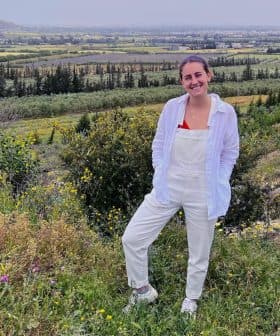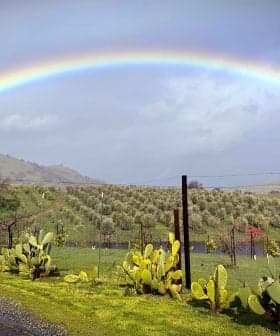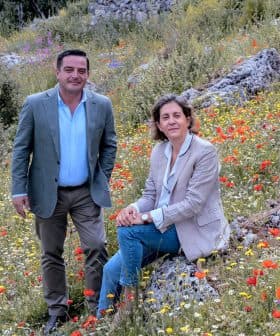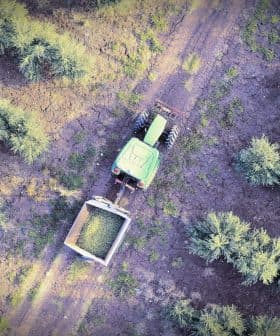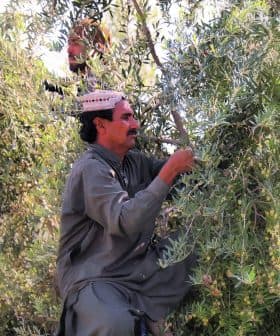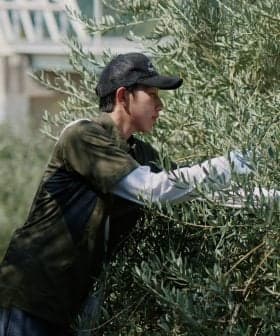Chilean Producer Bets Big on Italian Varieties
Olivos Ruta del Sol takes advantage of Chile’s terroir to produce some of the country's best extra virgin olive oils.
 Olivos Ruta del Sol produces 700,000 liters of extra virgin olive oil each year from five varieties. (Photos: Olivos Ruta del Sol)
Olivos Ruta del Sol produces 700,000 liters of extra virgin olive oil each year from five varieties. (Photos: Olivos Ruta del Sol) Olivos Ruta del Sol was established in 2006 by a group of entrepreneurs in Chile’s emerging olive oil industry, focusing on producing top-rate extra virgin olive oil. The company now grows 143,000 trees on 205 hectares, with a capacity to produce 700,000 liters of olive oil annually, earning recognition for their quality and sustainability efforts.
In 2006, Chile’s olive oil industry was still in its infancy. The country yielded 3,000 tons of olive oil that year, while the existing olive groves covered around 5,000 hectares.
Seeing a faint glimmer of growing potential in the country’s fledgling olive oil sector, a group of entrepreneurs decided to venture into olive oil production. Olivos Ruta del Sol was born.
“Apart from table olive plantations, there was not much information or company experience in olive oil production at the time,” Fernando Carrasco Spano, the company’s chief executive, told Olive Oil Times.
“The story of Olivos Ruta del Sol began with an enthusiastic group of entrepreneurs who wanted to participate in Chile’s emerging olive oil industry and decided to create a business project together,” he added. “Fascinated by the product’s benefits, they defined the common objective to make top-rate extra virgin olive oil.”
See Also:Producer ProfilesThe company’s journey toward producing award-winning olive oil began with the search for the ideal location.
After exploring almost 20 properties across the country, the founding partners of Olivos Ruta del Sol settled in Huerto La Marquesa de Leyda in the central Chilean region of Valparaíso.
“They were captivated by the emerging characteristics of the valley, took a bet on this essentially untapped area of Chile and planted the first 100 hectares of olive trees in 2006,” Spano said.
Two years later, the company began planting its second olive grove near El Cerrillo in the O’Higgins region, which finally became its principal base of operations.
“The area of El Cerrillo in Pumanque has a very marked Mediterranean climate, with many hours of daylight,” Spano said. “Gradually, the company’s productive and operating center moved to this orchard, from where we supply the growing national and international market.”
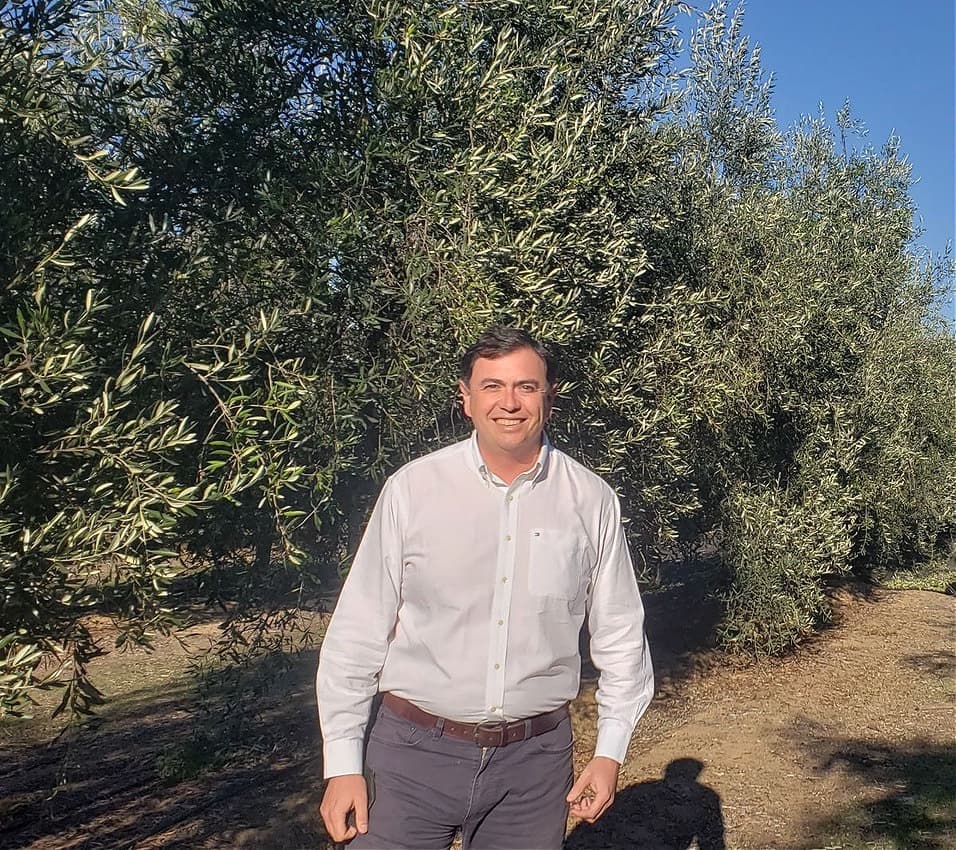
Fernando Carrasco Spano co-founded Olivos Ruta del Sol in 2006.
Olivos Ruta del Sol, also known as Deleyda from its range of olive oils, now grows 143,000 trees of Leccino, Frantoio, Coratina, Koroneiki and Arbequina olives on 205 hectares with the capacity to produce 700,000 liters of extra virgin olive oil each year in its high-tech olive oil mill.
Although new to olive oil production, the company’s founders knew from the outset that quality is one of the main factors in turning a small but ambitious olive oil producer into a success story.
“Since the beginning, our strongest conviction has been to maintain a coherent olive oil project, even if it means lower yields or higher production costs,” Spano said. “Quality is at the core of our conviction.”
The slender, sinuous South American country offers numerous advantages for growing olive trees: the central valley, Chile’s most fertile land and home to most of the olive groves, boasts a temperate Mediterranean climate and rocky, well-drained soil.
Chile is the second-largest olive oil producer in the Americas, with 28,000 hectares of olive groves planted and an average annual production of 20,000 tons of olive oil.
In addition, natural barriers protect Chile from many of the scourges that have bedeviled olive growers in other producing countries. One of them is the olive fruit fly, a pest that can undermine the quality of olive oil.
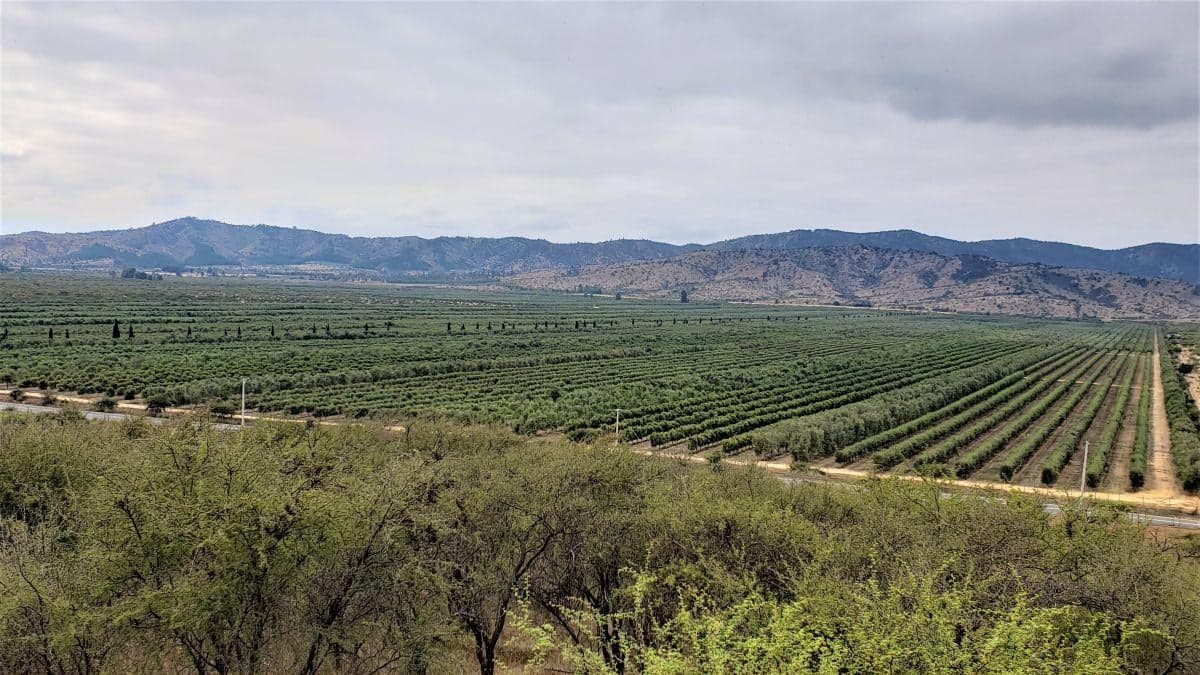
Spano said Olivos Ruta del Sol was one of the first companies to plant olives in Valparaíso.
“Our location in central Chile offers a strong barrier against olive pathogens because of the Andes,” Spano said.
“The planting and growing of our Italian varieties is a good example of our belief in quality and consistency in maintaining it,” he proudly added. “We bet on them even though their yield is much lower than other varieties. Few orchards in Chile have these varieties; for us, they are key.”
Olive cultivars
An olive cultivar is a cultivated variety of the olive tree (Olea europaea). There are over 1,000 different olive cultivars, each with its own unique characteristics. Some of the most common olive cultivars include:
Olive cultivars are typically named after the region where they originated. For example, the Arbequina cultivar originated in the Arbequina region of Spain.
Olive cultivars are important for the production of olive oil and table olives. The type of olive cultivar used can affect the flavor, aroma, and quality of the olive oil or table olives.
Olive cultivars are also important for the olive tree’s resistance to pests and diseases. Some olive cultivars are more resistant to certain pests and diseases than others. This is important for olive growers, as it can help to protect their trees from damage and loss of yield.
Deleyda has also managed to avoid any serious repercussions from the prolonged drought that has affected much of rural Chile for over a decade.
“The drought has been a challenge for the last five years here but didn’t affect our 2023 olive oil crop,“ Spano said. “In any case, we continuously improve water use in our groves to cater for any shortages.”
The company’s production operations are characterized by a reciprocal approach, recognizing the importance of being located in such a favorable area for the production of olive oil.
“It is essential for us to impact the environment and our community positively,” Spano said.
“This is why we have been adding different strategies to mitigate our CO2 emissions and stay loyal to our commitment to environmentally friendly olive oil production,” he added. “One of them was installing a solar panel in Pumanque, which allows us to source our energy needs cleanly and responsibly.”
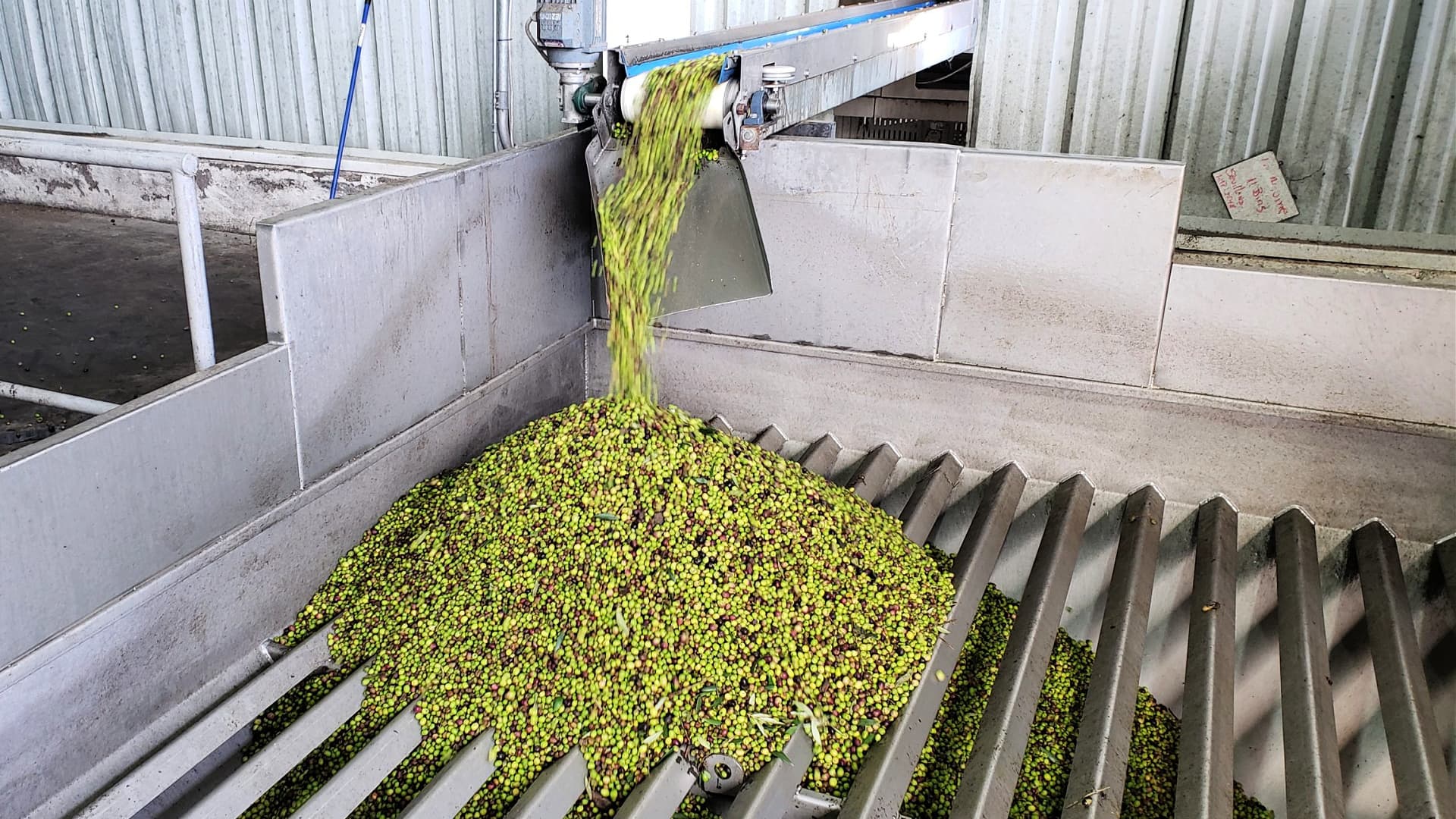
Along with following sustainable best practices, Spano attributed some of the company’s success to its modern mill.
Deleyda has also earned a “Sustainable Olive Oil” seal from the producers’ association ChileOliva, which certifies its compliance with the Clean Production Agreement environmental strategies operating in Chile.
Despite climate change affecting harvest times, the company has adapted and continues to produce some of the country’s best olive oils.
“Every year, the harvest starts earlier than the year before,” Spano said. “The 2023 crop went according to plan, with our oils boasting elevated aromas and great organoleptic characteristics thanks to the cool climate and the slow maturation of the olives.”
In this year’s NYIOOC World Olive Oil Competition, the Deleyda olive oil blends earned a Gold and a Silver Award, extending the winning streak of Olivos Ruta del Sol at the NYIOOC to five consecutive years.
“To win in New York is extraordinary, especially because our markets are almost 100 percent overseas,” Spano said. “Reaching the top motivates us to work even harder every year to deliver our quality products.”
The company’s dedication to quality and sustainability, coupled with the unique attributes of the Chilean terroir, has made Olivos Ruta del Sol a force to be reckoned with among producers based in South America’s Southern Cone.
“The project grew in challenges and ambitions, but always with the conviction that the only way to produce excellent olive oil was to commit to quality,” Spano said.
“We have outlined this vision for our company, and we are very proud to have built a coherent olive project over time, thanks to meticulous and hard work,” he added. “We want to bring our extraordinary olive oil to more places in the United States and the rest of the world.”
Share this article



